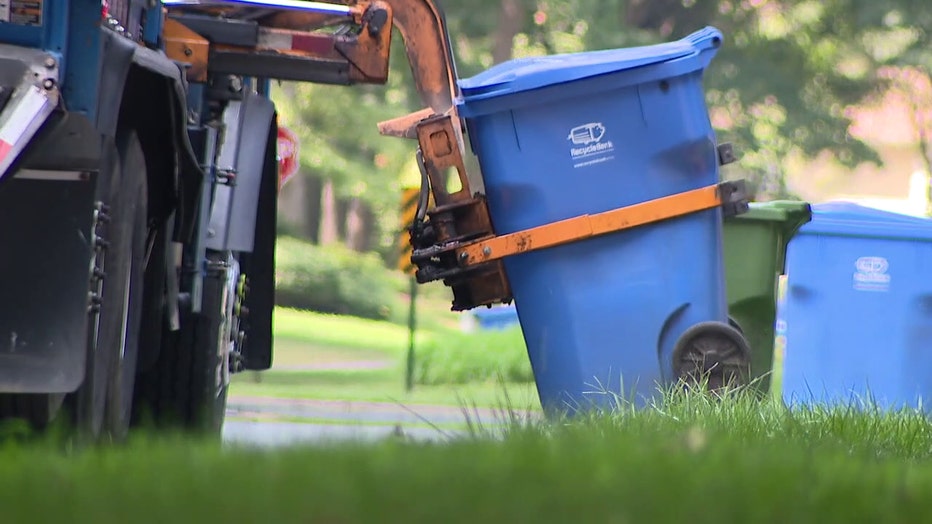'Straight garbage': What causes your recyclables to head to the trash
TAMPA, Fla. - So, what do you really know about recycling?
Have you heard that most collected recyclables end up in a landfill if we don't properly prepare them for the bin? Yes, contamination is a problem. That's when things that can’t be recycled are mixed in with stuff that can.
Hillsborough County has a 24% contamination rate.
READ: Curbside recycling in unincorporated Polk County being eliminated in 2024
"That essentially one in every four trucks is straight garbage, and we basically have to treat it like that," said Hillsborough County recycling coordinator, Daniel Gallagher.
He said if you are ever in doubt about which items to put in the recycling bin, just leave them out.
What about landfill space? Do we have enough?
This depends on what municipality you live in. Polk County said it has 150 years worth of landfill space to fill. Hillsborough County said its landfill has only five to seven years of space left.
MORE: USF preserves Egmont Key with 3D app as barrier island 'washes away'
They said recycling has added two years to that lifespan over the last decade.

"We have one landfill in the county. When that fills up, that means we have to cite more land. It's incredibly expensive," said Gallagher.
As for the value of recycled goods, it’s not much. China doesn’t buy them from the United States anymore, because ours are too contaminated and they have their own.
"China’s economy changed, because they got involved in recycling. Now, they’re making money, and they’re laughing while we are holding on to all this filthy stuff, going ‘I don’t know what to do with it,’" said USF Patel College of Sustainability associate professor, Dr. T.H. Culhane.
But you might think there’s still a way to cash in and for cities to sell their recyclables, but that's not true.
READ: 2 'advanced age' manatees transported from Miami Seaquarium to ZooTampa
It costs municipalities money to recycle. Hillsborough said in a good month, recycling revenue covers only about 20% of the cost. Other places, like Polk County, said it's simply not worth it.
Polk County commissioners voted to cancel curbside recycling starting next October.
"It is a business decision that it simply costs more than the value received," said George Lindsey, Polk County commissioner for District 1.
But there's one thing everyone can agree on: Wish-cycling and contamination destroy the process.
That's when people throw items into the bin that they aren't sure are recyclable, or they simply don't clean items. Administrators said to check with your city or county to see exactly what you can recycle and how to do it.

